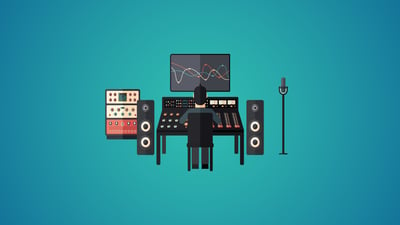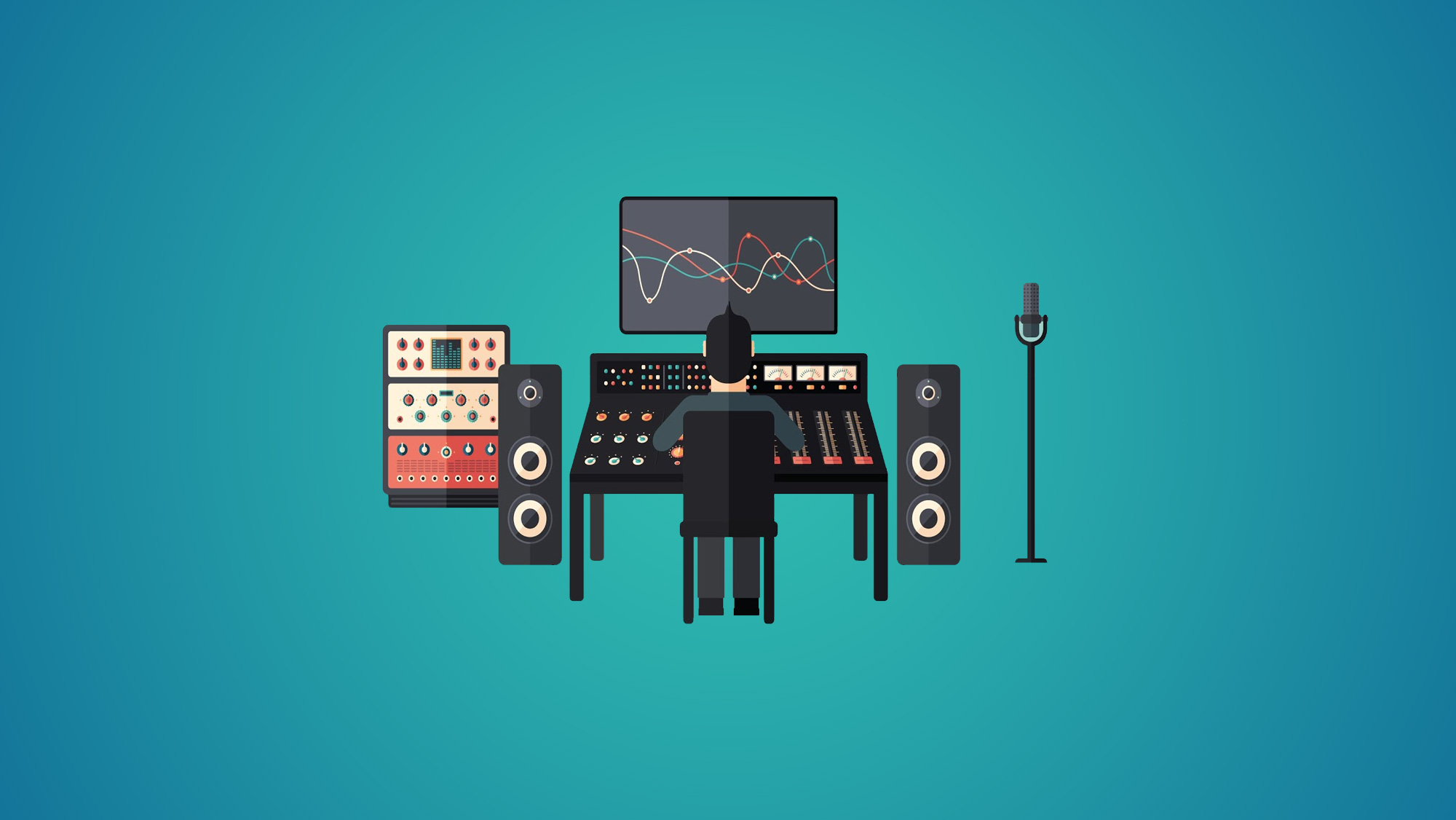Everything You Need To Know About Audio Production Training
Introduction:
Audio production is a crucial element in various industries, including music, film, broadcasting, and podcasting. Mastering the art of audio production requires a combination of technical skills and creative sensibilities. In this blog, we will explore everything you need to know about audio production training. From understanding its importance to exploring training modules and skills gained, this guide will provide valuable insights into the world of audio production and how to excel in this field.
Who needs Audio Production Training?
Importance of Audio Production Training:
Topics Covered in Audio Production Training:
Career Opportunities in Audio Production:
Choosing the Right Audio Production Training Program:
Who needs Audio Production Training?
Audio production training is beneficial for individuals who are passionate about sound and interested in pursuing careers in various fields such as music production, sound engineering, podcasting, voice-over, and live event production. It is also useful for professionals who want to enhance their existing audio skills and stay updated with the latest industry trends and technologies. Whether you are a beginner or an experienced professional, audio production training can provide valuable knowledge and practical experience to excel in the field.
Importance of Audio Production Training:
Audio production training is of utmost importance for several reasons:
- Technical Skills: It equips individuals with the technical skills required to work with various audio equipment, software, and tools. This includes knowledge of recording techniques, editing, mixing, mastering, and sound design. Proper training ensures proficiency in operating industry-standard equipment and software.
- Quality Control: Training helps individuals develop an understanding of sound principles, acoustics, and audio signal processing. This knowledge enables them to produce high-quality audio recordings, ensuring clarity, balance, and consistency in sound output.

Read More: Unleashing Creativity:Advanced Techniques in Audio Production Training |
- Creative Expression: Audio production training nurtures creativity by teaching individuals how to manipulate sound elements to create unique and engaging audio experiences. It helps them explore different sound effects, music arrangements, and audio enhancements to convey emotions and messages effectively.
- Industry Relevance: With rapid advancements in technology and evolving industry standards, audio production training keeps professionals up to date with the latest trends and practices. It ensures they are equipped with the skills required to meet the demands of the ever-changing audio industry.
- Career Opportunities: Proficiency in audio production opens doors to diverse career opportunities. This includes working as a sound engineer, music producer, audio editor, podcast producer, voice-over artist, or live sound technician. Training provides individuals with the necessary knowledge and experience to excel in their chosen audio-related career path.
Topics Covered in Audio Production Training:
Audio production training covers a wide range of topics to provide individuals with a comprehensive understanding of the field. Some of the common topics covered in audio production training include:
- Sound Theory: Introduction to the fundamental principles of sound, including concepts like frequency, amplitude, wavelength, and phase.
- Recording Techniques: Techniques and best practices for capturing high-quality audio recordings, including microphone selection, placement, and signal routing.
- Audio Editing: Introduction to audio editing software and techniques for manipulating and enhancing recorded audio, such as cutting, trimming, fading, and crossfading.
- Mixing and Mastering: Principles and techniques for combining multiple audio tracks, adjusting levels, applying EQ and dynamics processing, and achieving a balanced and polished sound mix. Mastering techniques for finalizing audio tracks for distribution.
- Sound Design: Exploring creative approaches to sound creation, including the use of effects, synthesis, sampling, and Foley techniques to design unique and immersive audio elements.
- Music Production: Introduction to music production concepts, including arranging, composing, programming virtual instruments, and working with MIDI.
- Post-Production: Techniques for audio post-production, such as synchronizing audio with video, dialogue editing, sound effects editing, and audio restoration.
- Live Sound: Essential knowledge and skills for working with live sound setups, including setting up PA systems, mixing consoles, signal routing, and troubleshooting.
- Industry Standards and Practices: Familiarity with industry-standard software and hardware tools used in audio production, understanding file formats, metadata, and best practices for organizing and delivering audio projects.
- Workflow and Project Management: Effective project organization, file management, collaboration, and time management techniques specific to audio production.
Career Opportunities in Audio Production:
A career in audio production can open up a wide range of opportunities in various industries. Here are some of the career paths and job opportunities available for individuals with audio production skills:
- Audio Engineer/Producer: Audio engineers and producers are responsible for recording, editing, mixing, and mastering audio for various projects such as music albums, podcasts, films, and commercials.
- Sound Designer: Sound designers create and manipulate audio elements to enhance the overall experience in areas such as film, television, video games, and virtual reality. They create sound effects, Foley, and ambient sounds to complement visuals and create immersive environments.
- Music Producer: Music producers work closely with artists to oversee the production process, including recording, arranging, mixing, and mastering music tracks. They collaborate with musicians, songwriters, and engineers to achieve the desired artistic vision.
- Live Sound Engineer: Live sound engineers are responsible for setting up and mixing sound for live performances, concerts, conferences, and other events. They work with artists, technicians, and venue staff to ensure high-quality sound reinforcement.
- Broadcast Engineer: Broadcast engineers handle the technical aspects of audio production for television and radio broadcasts. They ensure that audio signals are properly transmitted and received, and they may also manage equipment and troubleshoot technical issues.
- Audio Post-Production Engineer: Audio post-production engineers specialize in editing, mixing, and mastering audio for post-production projects such as films, TV shows, and commercials. They work closely with directors, editors, and other professionals to achieve the desired audio quality and deliver the final product.
- Podcast Producer: With the growing popularity of podcasts, there is an increasing demand for podcast producers who can handle all aspects of audio production, including recording, editing, mixing, and publishing episodes.
Choosing the Right Audio Production Training Program:
Choosing the right audio production training program is crucial for acquiring the necessary skills and knowledge to excel in the field. Here are some factors to consider when selecting a training program:
- Curriculum and Course Content: Review the curriculum of the training program to ensure it covers all the essential topics and skills relevant to audio production. Look for courses that cover recording techniques, audio editing and mixing, sound design, music production, and other areas of interest.
- Practical Hands-on Experience: A good training program should provide ample opportunities for hands-on practice and real-world experience. Look for programs that offer practical assignments, studio sessions, and opportunities to work on actual audio projects.
- Qualified Instructors: Research the qualifications and expertise of the instructors who will be teaching the training program. Experienced professionals with industry knowledge can provide valuable insights and mentorship throughout the learning process.
- Industry Connections and Opportunities: Consider training programs that have strong connections to the industry, such as partnerships with recording studios, production companies, or industry professionals. These connections can provide networking opportunities and potential internships or job placements.
- Learning Format and Flexibility: Determine the learning format that suits your needs, whether it's in-person classes, online courses, or a combination of both. Consider the flexibility of the program in terms of scheduling, access to course materials, and the ability to learn at your own pace.
- Training Tools and Facilities: Assess the availability and quality of the training tools and facilities, such as recording studios, editing software, and audio equipment. Practical training should be supported by industry-standard tools to ensure a realistic learning experience.
- Student Support and Resources: Find out what kind of support and resources the training program offers to its students. This may include access to mentors, online forums, libraries, or career services to help with job placement or freelance opportunities.
- Reputation and Reviews: Research the reputation of the training program by reading reviews and testimonials from past students. Look for programs that have a positive track record and are known for producing skilled audio professionals.
- Cost and Financial Considerations: Evaluate the cost of the training program and determine if it aligns with your budget. Consider any available scholarships, grants, or financing options that can help make the program more affordable.
- Personal Goals and Specialization: Consider your personal goals and the specific areas of audio production that interest you the most. Look for training programs that offer specialization options or advanced courses in those areas.
Conclusion:
Audio production training is essential for aspiring audio professionals seeking to excel in various industries, including music, film, broadcasting, and podcasting. By gaining expertise in audio production, you can unleash your creativity and technical skills to craft immersive sound experiences. Embrace the comprehensive training options available and embark on a journey to master the art of audio production. Enhance your audio production skills and open doors to exciting opportunities in the world of sound and entertainment.
You May Also Like
These Related Stories

Creating Memorable Soundscapes: Dive into Audio Production Training

Unleashing Creativity:Advanced Techniques in Audio Production Training




No Comments Yet
Let us know what you think